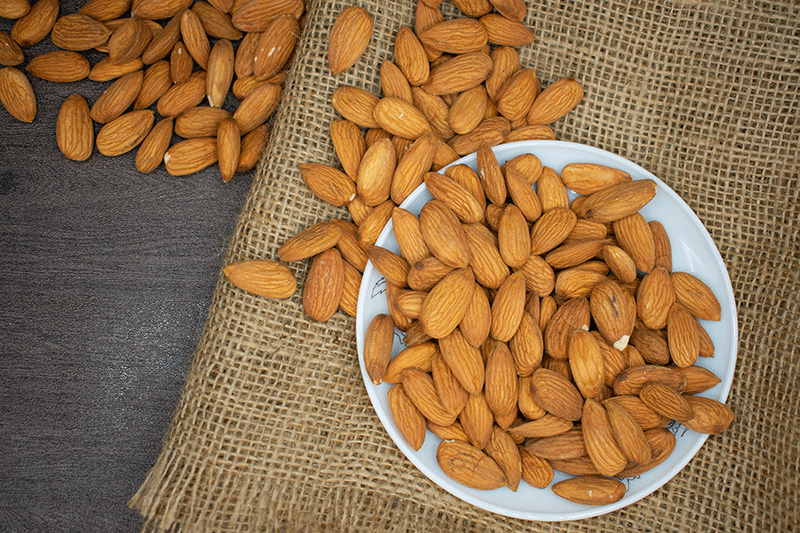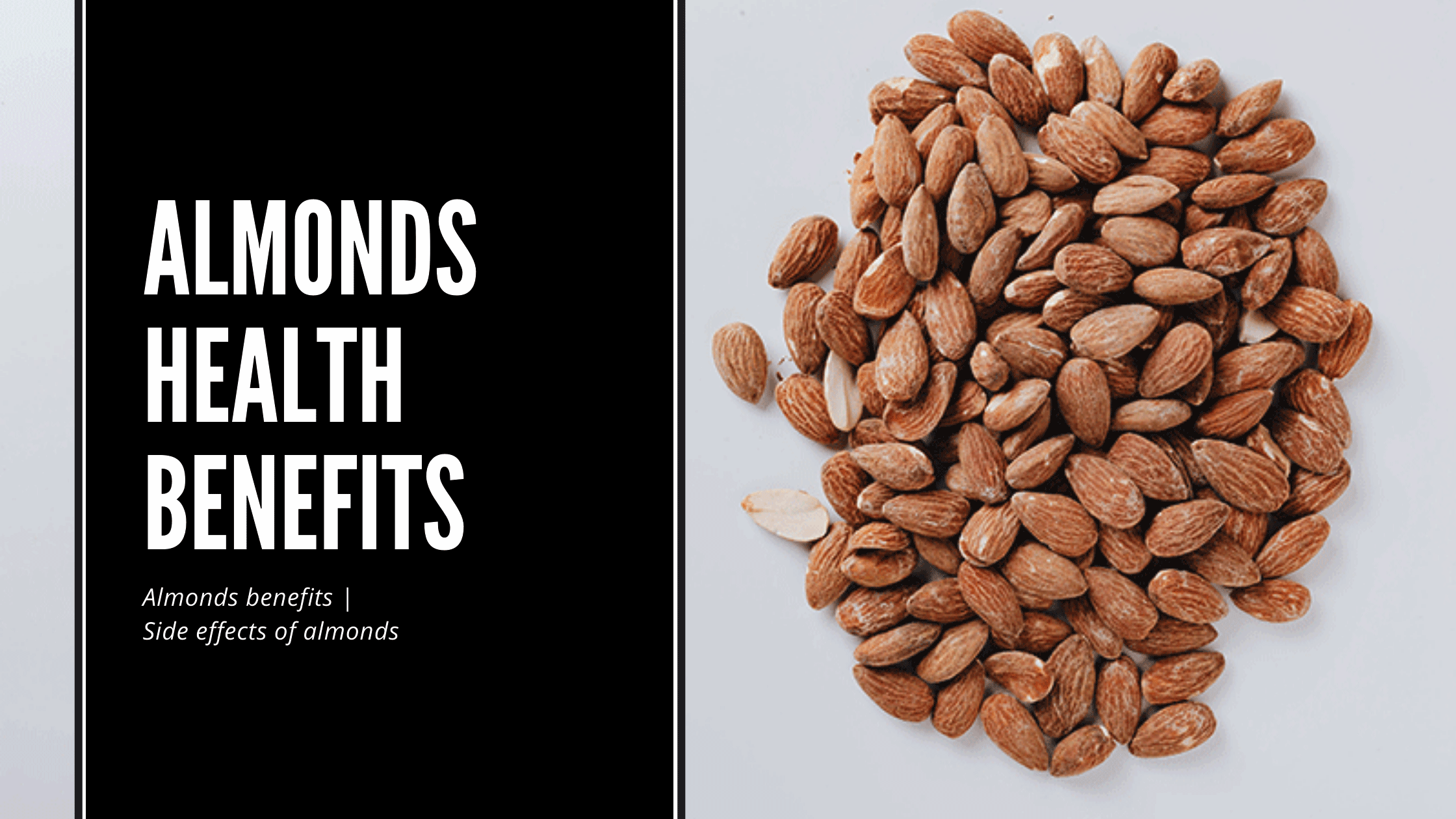Almonds
They are not basically nut but a seed. Almonds are one of the world’s most nutritious nuts, renowned for their many health benefits and a great immune booster. The trees of almonds are one of the earliest cultivated trees by people. A person can get one-eighth of his daily protein by just a handful of almonds. There are so many ways by which you can have almonds in your diet- raw, roasted, or salted. You can also garnish your dessert with almonds.

Almonds are extremely famous among dieters and are also easily available. They are also safe for animals, studies have shown that almonds are not toxic to animals. Almonds have more than 30 varieties.
types of almonds
Benefits of Almonds
Almonds can be very beneficial for your health since it contains vitamins, fiber, proteins, and minerals.
A very major role that almonds play is that they are very good for your heart and brain, the two very essential body parts. It provides 5 percent of daily recommended potassium which is necessary for your heart. It has unsaturated fat, hence does not increase the risk of bad cholesterol. In fact, unsaturated fat may improve the blood cholesterol of a person. Almonds increase vitamin E levels in RBCs ( red blood cells) and plasma, and it also lowers overall cholesterol levels.
They are rich in antioxidants which helps protect against oxidative stress. Oxidative stress can contribute to aging, inflammation, damage to molecules of your cells, and cancer. It also contains magnesium which is also essential for your heart.
People suffering from excess lipoproteins or lipids in the blood have shown positive response towards consuming almonds as snacks because of the reduction in their heart disease risk factors. Consumption of peanuts, almonds, and walnuts lowers the risk of breast cancer.
They are also good for Diabetic patients as it can help manage blood sugar levels. Type 2 diabetic patients have low magnesium, therefore it can be a good dietary source.
They are rich in proteins, healthful fats, and fiber but low in carbohydrates, so they can help one in managing weight. Eating almonds as a snack is helpful in feeling full so the person does not feel the need for a meal for some time.

” A study showed that women eating 1- 1.5 ounce of almonds as their mid-morning snack were more satisfied and consumed fewer calories”. They are helpful in regulating blood sugar levels, and studies showed that people eating almonds meals were found to have decreased in blood sugar and insulin.
They are rich in nutrients and are also gluten-free. People choosing a gluten-free lifestyle can consume all forms of almonds be it almond flour, almond milk, or almond butter. It keeps your liver and gallbladder running smoothly because of the fat and fiber content in it.
Almonds Nutrition
Almonds are higher in nutrition than any other tree nut. They are very nutritious, low carbohydrate food and they are portable too.
1 ounce (28 g) of almonds contains:
* Fat: 14.2g (9gm are monounsaturated)
* Calories: 164
* Fiber: 3.5g
* Sugars: 1.2g
* Sodium: 0mg
* Protein: 6g
It has copper, vitamin K, protein manganese, calcium, and zinc, which are very healthy for bones and teeth. 1 ounce of it has 76.5 mg of magnesium and like almost 18% to 24% of an adult’s daily requirement. Almond provides 22 percent of the recommended daily fat in one ounce.
1 ounce of almond provides you with 8% of daily recommended calcium, 6% of daily recommended iron, 37% of daily recommended vitamin E. Calcium is beneficial for teeth and bones, Vitamin E supports immunity and iron helps in getting oxygen to the muscles.
They are rich in phytic acid. Although phytic acid is a healthy antioxidant, it slightly reduces some amount of iron, zinc, and calcium from your almonds. About 3 ounces of almonds daily reduces oxidative stress by 23-34% over a month period. Vegans can eat almonds in their diets for supplements like vitamins, proteins, and choline may be lacking in a vegan’s diet.

Side Effects of Almonds
Some people may be allergic to it, and this allergy is usually severe. Abdominal pain, runny nose, nasal congestion, nausea, difficulty swallowing, shortness of breath, diarrhea, and itching are symptoms of an almond allergy. Consuming nut products like oils and butter too can cause an almond allergy attack.
It is not safe to consume almonds that are infected with mold because chemicals produced by molds can cause cancer. Lack of iron in pregnant women can result in the baby having a low IQ. Consuming almonds milk daily instead of cow’s milk can be a risk for iodine deficiency. Almonds milk can be supplemented with calcium but cannot be supplemented with iodine and iodine is essential for brain development and thyroid hormones.
Iodine deficiency is the most preventable cause of brain damage. Consuming an excess of almonds can lead to toxicity in your body. It contain hydrocyanic acid and overconsumption of them can lead to choking, nervous breakdown and can even lead to death.
Here at garden infograph we try to bring in front of you many relatable topics that are can add up to a healthy diet in your homes to keep your family and friends healthy. Some topics that we have covered are raisins, health benefits of saffron, chickpeas, kiwano(Horned melon), health benefits of groundnut, olive, coffee seeds, fennel, and you will find many more.
Pin it :

 Garden infograph We provide our best experinces about plants
Garden infograph We provide our best experinces about plants





